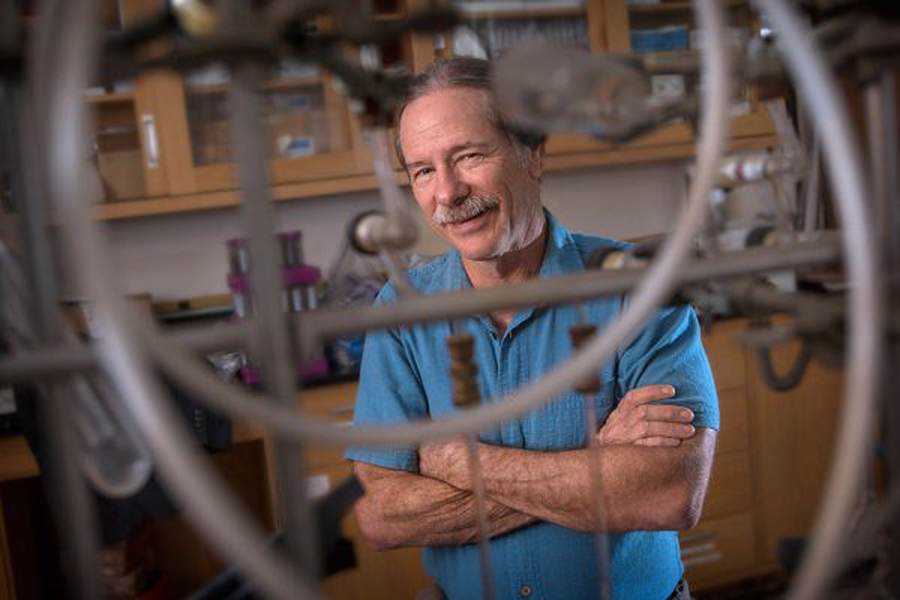
Carbon emissions and climate change were key issues in the past presidential election.
Newly inaugurated President Joe Biden has said he will sign an executive order to rejoin the Paris Agreement— an international accord with the goal of limiting global climate change that the United States left on Nov. 4, 2020.
Florida State University has faculty members available to offer context on climate change and the Paris Agreement.
Mark Bourassa, associate director of the Center for Ocean-Atmospheric Prediction Studies and professor of meteorology, Department of Earth, Ocean and Atmospheric Science
bourassa@coaps.fsu.edu
Bourassa has expertise on the exchange of energy and momentum between the ocean and atmosphere and how these exchanges influence changes in weather (e.g., tropical cyclones) and the ocean (e.g., ocean transport). He is also a leader in satellite remote sensing and in situ observations, which he uses to better understand regional changes in weather and to improve modeling of air-sea interaction.
Jeff Chanton, Robert O. Lawton Distinguished Professor and John Widmer Winchester Professor of Oceanography, Department of Earth, Ocean and Atmospheric Science
(850) 644-7493; jchanton@fsu.edu
Chanton is an acclaimed climate scientist who has done extensive work examining the causes of increased methane gas in the atmosphere. His research interests include chemical ocean geochemistry and environmental geology.
“Reducing greenhouse gas emissions is a global imperative. It is not about ‘Saving the Earth’ — We must act to preserve human civilization. Climatic disruptions and rising sea levels will hurt economies, lead to mass migrations, human misery, discomfort and conflict. The United States must lead by example and inspire other nations to follow. We need to act globally to preserve carbon stores on Earth and reduce the atmospheric burden of greenhouse gases.”
James Elsner, Earl and Sofia Shaw Professor and chair of the Department of Geography
jelsner@fsu.edu
Elsner is an expert on hurricanes, tornadoes and statistical models for prediction of these events. He researches the development of the science and technology for modeling the risk of catastrophic storms and their impacts. He studies the relationship of hurricanes and tornadoes to climate factors, such as climate change.
“Climate change is an apex issue for young people all over the world. As the oceans continue to heat up due to greenhouse gases released into the atmosphere from burning fossil fuels, we can expect the strongest hurricanes to get stronger. This portends a future of greater destruction here in Florida.”
Sarah Lester, assistant professor, Department of Geography
slester@fsu.edu
Lester’s research explores how science can inform sustainable management of ocean ecosystems. She studies conservation and restoration of marine ecosystems, seafood farming in the oceans and sustainable seafood systems, and the social and ecological vulnerability of marine systems to global change.
“Leaving the Paris Agreement could have devastating impacts on marine ecosystems, particularly highly vulnerable systems like coral reefs. Ocean warming, ocean acidification, sea level rise, increased dead zones, melting sea ice and changes to ocean circulation will threaten marine species and habitats. This is not just a problem for marine life, as many components of our economies, society and well-being are interconnected to the health of ocean ecosystems — we rely on ocean ecosystems for seafood, tourism and recreation, climate regulation, storm protection and numerous other benefits and we should be concerned about how climate change could compromise these benefits.”
Andrew Opel, professor, College of Communication and Information
(850) 322-3349; aopel@fsu.edu
Opel has been teaching and researching environmental communication for more than 20 years. He studies news media coverage of climate change, social movement climate activism and effective strategies for communicating climate science in words and images.
“Having spent the past year in Norway on a Fulbright scholarship where I was documenting anecdotal observations of climate change for my Climate Witness Project, I’m very familiar with the Scandinavian perspective on climate science and their view of America’s current response to the Paris Agreement. My work connects political rhetoric, public policy and climate solutions, offering a pathway forward beyond the partisan divisions of the current moment in the U.S.”




